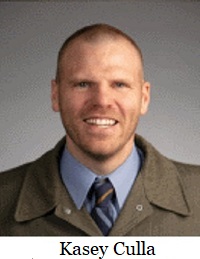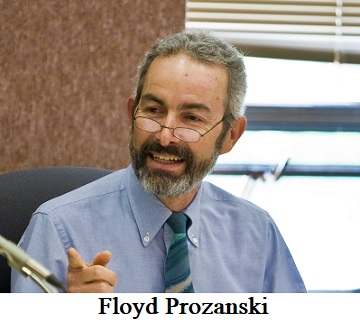“Everyone should have the ability to get from one place to another without the use of a carâ€
Senator Floyd Prozanski (D-Eugene), is an avid cyclist and the chief sponsor of
SB 395. A member of his staff, Jennifer Wig, testified on his behalf saying “the goal is to expand access to safe bike and walking infrastructure and to ensure equitable access to that biking and walking infrastructureâ€.
In 2017, the Oregon Legislature passed
HB 2017 referred to as Keep Oregon Moving. It included significant changes to the existing Connect Oregon Grant Fund directing the Oregon Transportation Commission to divide the grant fund into two new parts: 55% for air, marine, rail, bicycle, and pedestrian projects and 45%, for projects of statewide significance in air, marine or rail modes. Beyond the structural changes HB 2017 also included a new, first in the nation, bike tax of $15 each on bikes over $200.
In 2019, the Oregon Legislature again revisited the issue of pedestrian transportation options and passed
HB 2592. This bill established the Multimodal Active Transportation Fund for bicycle and pedestrian projects. It stated that 7% of the Connect Oregon Fund plus revenues from Oregon’s bicycle excise tax were to be used to provide grants for bicycle and pedestrian transportation projects. It also directed $4M of lottery revenues biannually be allocated for outdoor recreation improvement projects related to bicycle and pedestrian projects.
This session,
SB 395, at the request of The Street Trust led by former Portland mayoral hopeful Sarah Iannarone, looks to once again adjust the funding associated with bicycle and pedestrian projects. It would increase the allocation for footpaths and bicycle trails from 1% to 5% of the State Highway Fund.
One of the supporters of
SB 395, Yamhill County Commissioner Casey Kulla testified that “Everyone should have the ability to get from one place to another without the use of a carâ€. He explained that 1% was not enough for Yamhill county to meet the needs of pedestrian and bicycle infrastructure. He said “In our county we spent our entire 2019 allocation on one separated foot path on one rebuilt bridge.

The project that Commissioner Kulla may be referring to is the Yamhelas Westsider Trail. This was a project he championed starting back in 2013. It was a proposed 13-mile bike and pedestrian trail on an abandoned rail spur from McMinnville through Gaston. The project has been continuously tied up in land use lawsuits and appeals. Most recently, Yamhill County Commissioner Lindsay Berschauer called for an audit of the Yamhelas Westsider Trail bridge construction project. She said “According to my numbers, the county spent approximately $970K of the authorized $1,012,000 from the Connect (Oregon) VI agreement. The county spent an additional $56,250 from the parks grant. When any public agency spends a considerable amount of taxpayer money on a project and the ‘finished product’ does not reflect the cost or promised deliverables, an audit is warrantedâ€.
Commissioner Berschauer’s oversight concerns were echoed by testimony on behalf of over 25 Yamhill residents “ODOT authorized further grant expenditures to build a bridge without land use approval or any assurance that the county could meet its land use obligations. Meaning, ODOT authorized an entity to build a bridge to nowhere†the submitted testimony said.
The bill also had concerns from other rural residents throughout the state. Kim McCarrell of Bend had concerns with the bill authorizing electric scooters to be operated on trails and the impact that could have to others who use those trails. Keith LaHaie of Central Point, asked the committee in his written testimony if the 5% increase in spending on footpaths and bike trails is the result of actual demand from residents state-wide or from region specific groups or special interest organizations?
A D V E R T I S E M E N T

A D V E R T I S E M E N T
Supporters of the bill focused on how
SB 395 could assist with equity and climate change. Lee Helfend, OPAL Environmental Justice Oregon shared that negative impacts on our environment from single vehicle occupancy usage create emissions and those have “harmful impacts disproportionately affect communities of color, low-income communities, and other vulnerable populations that lack the time and resources to fully advocate for themselves in this processâ€. He also added that “as part of the rule-making advisory committee for the Governor's
executive order directing state agencies to take actions to reduce and regulate greenhouse gas emissions on climate change, we’ve had in-depth conversations around how we cannot only address the climate crisis, but also center equity and inclusion in this chargeâ€. Brett Morgan, Metro Regional Advocacy Manager for 1,000 Friends of Oregon agreed. He said “Ensuring that we begin prioritize non-automotive investments is a critical equity issue for those that are transportation disadvantaged, and for Oregon’s Black, Indigenous, Latinx, Asian American Pacific Islander, and other communities of color.
The bill is currently in the Joint Committee on Transportation.
--Terese Humboldt| Post Date: 2021-03-24 09:14:24 | Last Update: 2021-03-24 09:45:10 |







 The project that Commissioner Kulla may be referring to is the Yamhelas Westsider Trail. This was a project he championed starting back in 2013. It was a proposed 13-mile bike and pedestrian trail on an abandoned rail spur from McMinnville through Gaston. The project has been continuously tied up in land use lawsuits and appeals. Most recently, Yamhill County Commissioner Lindsay Berschauer called for an audit of the Yamhelas Westsider Trail bridge construction project. She said “According to my numbers, the county spent approximately $970K of the authorized $1,012,000 from the Connect (Oregon) VI agreement. The county spent an additional $56,250 from the parks grant. When any public agency spends a considerable amount of taxpayer money on a project and the ‘finished product’ does not reflect the cost or promised deliverables, an audit is warrantedâ€.
The project that Commissioner Kulla may be referring to is the Yamhelas Westsider Trail. This was a project he championed starting back in 2013. It was a proposed 13-mile bike and pedestrian trail on an abandoned rail spur from McMinnville through Gaston. The project has been continuously tied up in land use lawsuits and appeals. Most recently, Yamhill County Commissioner Lindsay Berschauer called for an audit of the Yamhelas Westsider Trail bridge construction project. She said “According to my numbers, the county spent approximately $970K of the authorized $1,012,000 from the Connect (Oregon) VI agreement. The county spent an additional $56,250 from the parks grant. When any public agency spends a considerable amount of taxpayer money on a project and the ‘finished product’ does not reflect the cost or promised deliverables, an audit is warrantedâ€.
